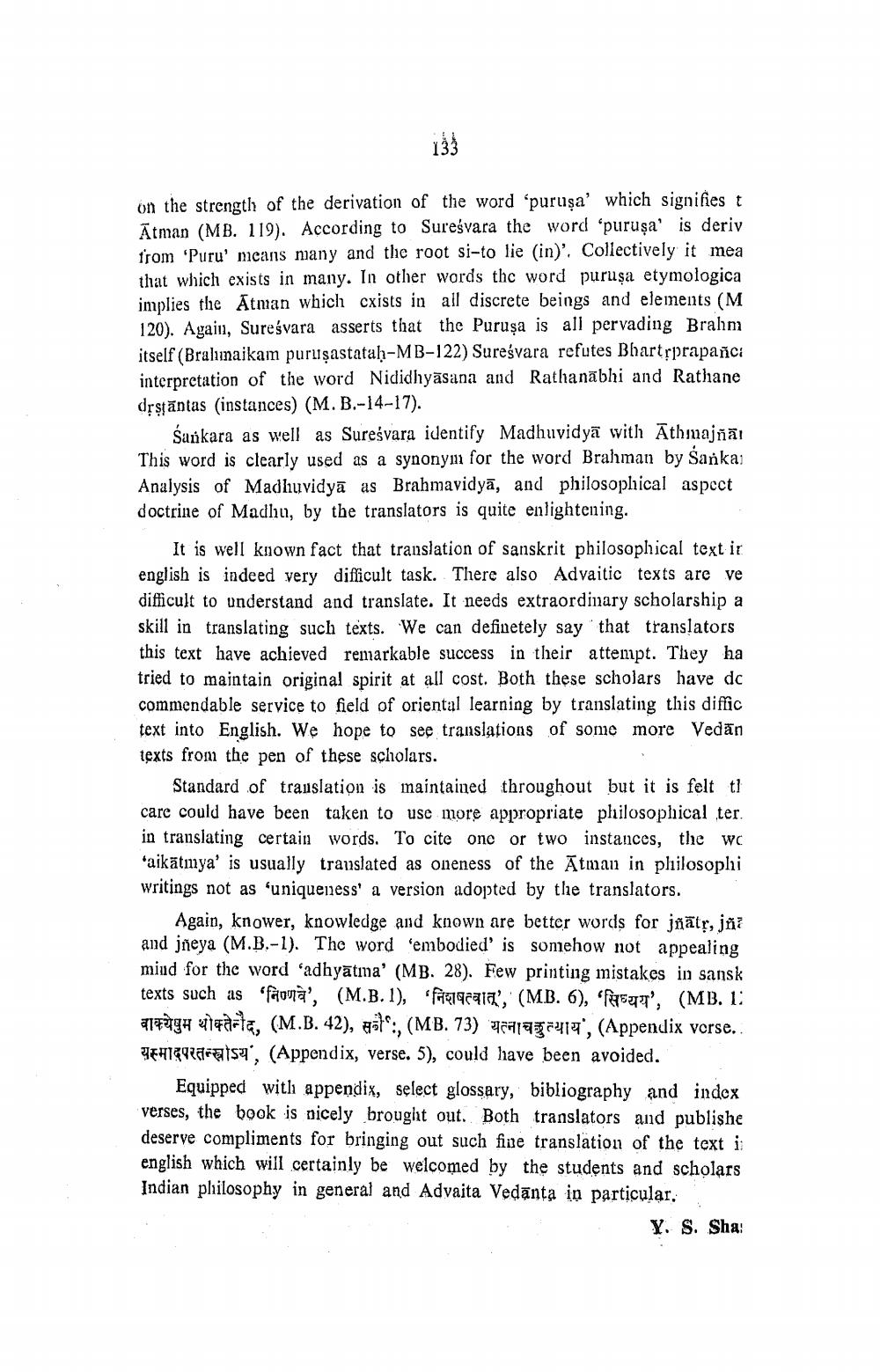________________
wen
on the strength of the derivation of the word “puruşa' which signifiest Ātman (MB. 119). According to Sureśvara the word 'puruşa' is deriv trom 'Puru' means many and the root si-to lie (in)'. Collectively it mea that which exists in many. In other words the word puruşa etymologica implies the Ātman which cxists in all discrete beings and elements (M 120). Again, Sureśvara asserts that the Puruşa is all pervading Brahm itself (Bralunaikam puruşastatah-MB-122) Sureśvara refutes Bhartrprapanc: interpretation of the word Nididhyāsana and Rathanäbhi and Rathane drstāntas (instances) (M. B.-14-17).
Sankara as well as Sureśvara identify Madhuvidyā with Āthmajñāl This word is clearly used as a synonym for the word Brahman by Sanka: Analysis of Madhuvidyā as Brahmavidyā, and philosophical aspect doctrine of Madhu, by the translators is quite enlightening.
It is well known fact that translation of sanskrit philosophical text ir english is indeed very difficult task. There also Advaitic texts are ve difficult to understand and translate. It needs extraordinary scholarship a skill in translating such texts. We can definetely say that translators this text have achieved remarkable success in their attempt. They ha tried to maintain original spirit at all cost. Both these scholars have do commendable service to field of oriental learning by translating this diffic text into English. We hope to see translations of some more Vedān texts from the pen of these scholars.
Standard of translation is maintained throughout but it is felt t? care could have been taken to use more appropriate philosophical ter. in translating certain words. To cite one or two instances, the wc ‘aikātmya' is usually translated as oneness of the Atman in philosophi writings not as 'uniqueness' a version adopted by the translators.
Again, knower, knowledge and known are better words for jñāts, jña and jneya (M.B.-1). The word 'embodied' is somehow not appealing miud for the word 'adhyātma' (MB. 28). Few printing mistakes in sansk texts such as 'fana', (M.B.1), faqacala', (MB. 6), '5 ', (MB. 1. algu u arta, (M.B. 42), a3}:,(MB. 73) 47719397417", (Appendix verse.. FEHTgaralsa, (Appendix, verse. 5), could have been avoided.
Equipped with appendix, select glossary, bibliography and index verses, the book is nicely brought out. Both translators and publishe deserve compliments for bringing out such fine translation of the text i english which will certainly be welcomed by the students and scholars Indian philosophy in general and Advaita Vedanta in particular,
Y. S. Sha:




